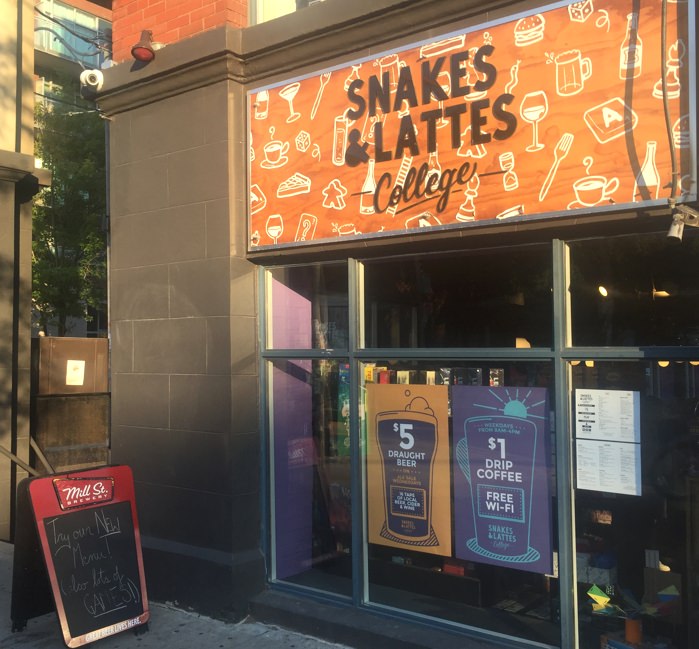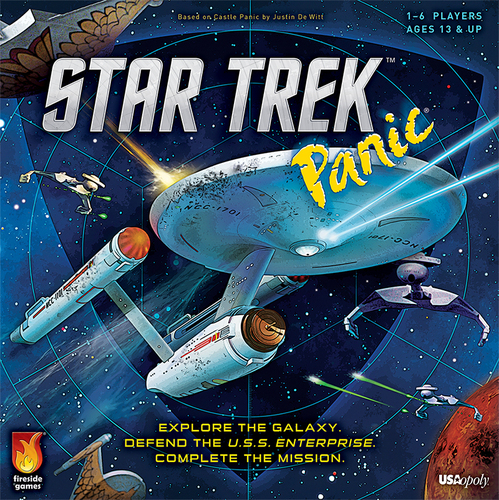Time to get some Mow Money!

Kids don’t particularly enjoy mowing the lawn.
But one of the great benefits of having kids is adding “mow the lawn” to their chores list.
With 4 kids and a little bit of training, we’ve enjoyed many years of our kids mowing the lawn. And we have a number of years still to go before it’s all back on us.
Of course, there are also many enterprising kids that start up neighborhood lawn mowing businesses as summer jobs.
They start with just a lawnmower and the drive to earn some money. Then they’re off and rolling.
In Mow Money, a new family board game from Mayday Games, everyone in the family can try taking a fledgling landscaping business to greatness.
Have you got what it takes to take your neighborhood business to the top?
How to play Mow Money
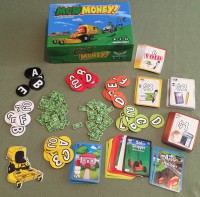
In Mow Money, players are vying to become the best landscaping company in the city. The player who earns the best reputation will be awarded a lucrative contract by the mayor.
The game is played over a series of rounds wherein players bid on potential jobs in the neighborhoods around town. Successful bids are rewarded with a payout which players use to invest in better lawnmowers as well as better bidding cards. The player who manages their landscaping business the best will win the game.
Set Up
The first part of set up is getting the neighborhoods ready. Set out as many neighborhood cards as there are players in the game. (The neighborhoods are named to correspond to the player bid chips – A, B, C…)
Then each neighborhood gets a certain number of Contract cards depending on the number of players. The Contracts in each neighborhood will be what the players are bidding on each round.
The Bid cards are then separated and shuffled into Basic, Medium, Advanced decks.
Then each player is given three lawn mower cards of their color. The Basic lawnmower is placed face up in their player area and the Medium and Advanced lawnmowers are placed face down (the price tag side showing). Each player gets a set of bid tokens in their color that corresponds to the neighborhoods in play. And players also each get 5 Basic Bid cards and 3 Bluff cards for their starting hand.
Finally, players pick a first player and hand him or her the Starting Player marker to begin the game.
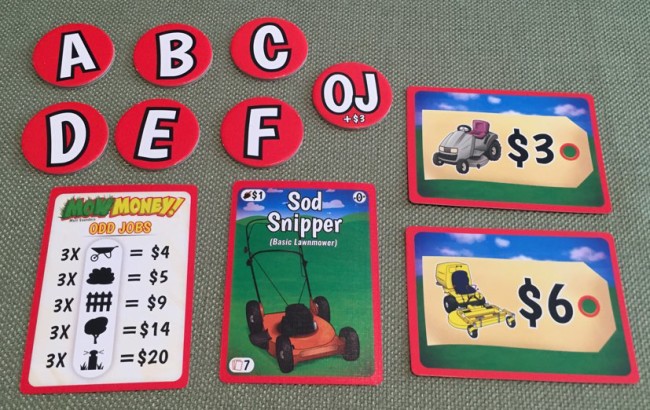
Player Turns
Each round of the game consists of 4 phases: Invest, Bid, Resolve, and Maintenance.
1. INVEST
Since players don’t start with any money (definitely a start-up business), the Invest phase is skipped during the first round. But normally what will happen during this round is that players (in turn order) will spend their money to buy either a lawnmower upgrade or more Bid cards.
To buy a lawnmower, a player pays the bank the amount shown on the lawnmower card they want to purchase. They then turn that lawnmower card face up and will be able to use it for the rest of the game.
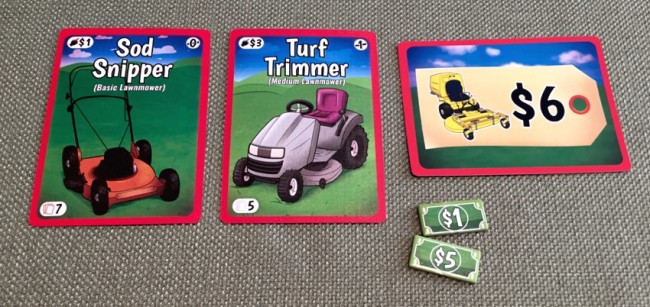
To buy Bid cards, a player must first own the level of lawnmower that corresponds to level of Bid cards they want to buy. At the beginning of the game, players can only buy Bid cards from the Basic deck.
The cost of Bid cards is indicated in the upper-left hand corner of the lawnmower card. For example, a Basic Bid card costs $1 and a Medium Bid card costs $3.
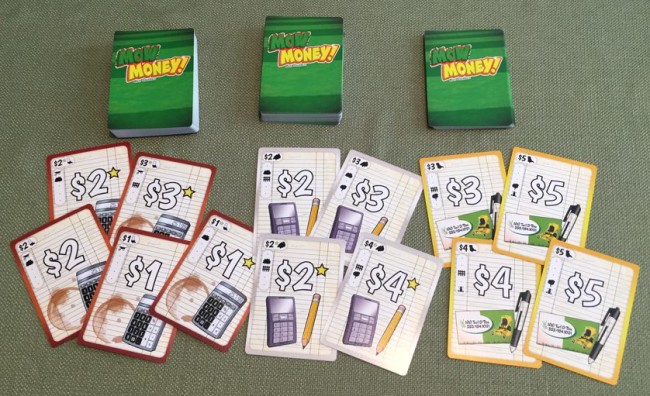
Players can buy as many Bid cards as they’d like (and can pay for). However, at the end of their Invest phase they must discard down to their hand limit. The hand limit also depends on the level of the Bid cards and is indicated in the bottom-left hand corner of the lawnmower cards. Players can hold up to 7 Basic, 5 Medium, and 3 Advanced Bid cards.
2. BID
Bidding in Mow Money is quite unique. Instead of the Contract going to the highest bidder, the Contracts will be awarded to the lowest bidder in each neighborhood.
During this phase, players also go in turn order.
Players can place 2 bids during the Bid phase. They use their Bid tokens to either bid on Contract cards in the neighborhoods or to do Odd Jobs.
To bid on a Contract card, players choose Bid cards from their hand and place them under the Bid token for the neighborhood they want to bid on. For example, if a player wants to bid on the contract at Apple Hollow, they place bid cards under their “A” token. Both the Bid cards and the Bid token are placed face down so other players don’t know which neighborhood they’re bidding on. Then the next player places their 2 bids.
In the bottom-left corner of each Contract card are listed the number and type of Bid cards required for that particular job. For example, a Contract card showing a 4 next to a Basic lawnmower icon, a 3 next to a Medium lawnmower, and a 2 next to an Advanced lawnmower can be bid on using either of those options – 4 Basic, 3 Medium, or 2 Advance Bid cards. The value of the bid cards placed is up to the player, but the quantity of cards has to match the Contract card requirement. However, if there is a star icon in the requirement section, the bid cards used at that level must also have a star icon on them.
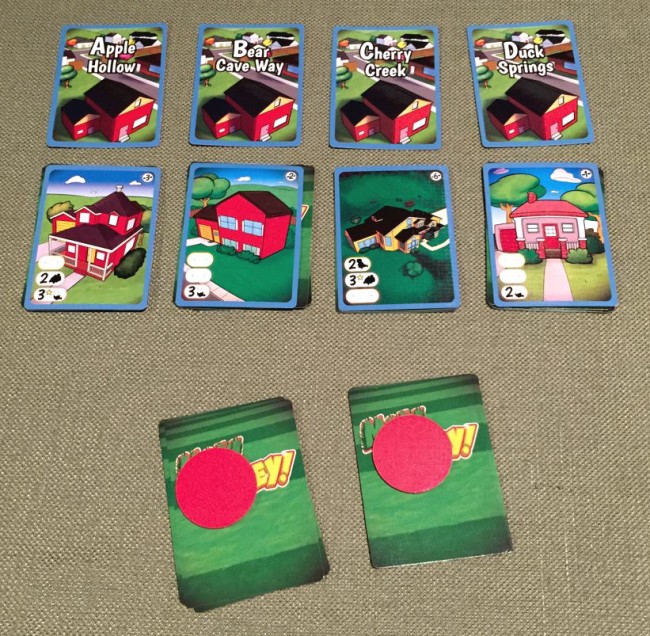
This is also where the Bluff cards come in handy.
In the above example, a player may want to bid using 2 Medium level cards. However, they may not want the other players to know that, so they may also add in a Bluff Bid card from their hand, thus putting 3 cards under their bid token. That way it will look like they’re bidding on a Contract card that requires 3 cards instead of what they’re really bidding on.
In addition, players can also add to their bid Contract cards previously gained. The number in the upper-right corner of a Contract card is the Reputation gained. Players can use those cards to “Stake Their Reputation” on a bid. Doing so reduces the total bid amount. So if a player puts a 3 Reputation card in with their bid, their bid amount will be 3 less than the value showing on their bid cards. Thus, they can undercut a competitor bidding on that same neighborhood.
Rather than bid on Contracts, a player may instead complete Odd Jobs to earn money.
Each Bid card has one or two Odd Job icons on the left side. Players need 3 cards with a matching icon to complete an Odd Job. They place these 3 cards under their Bid token with an “OJ” on it (again, all face down so other players don’t know what they’re bidding on).
Once all players have placed their bids, they move on to the Resolve phase.
3. RESOLVE
All players flip over their Bid tokens to reveal which neighborhood they’re bidding on or if they’re doing Odd Jobs. Players who selected Odd Jobs will resolve first.
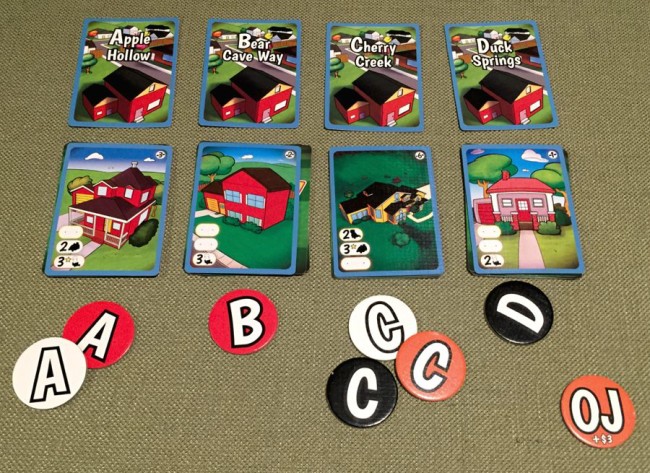
Those who completed an Odd Job will discard their 3 bid cards used and will gain the corresponding amount listed on the Odd Jobs reference card. For example, if they turned in 3 cards showing Fences, they’ll receive $9. In addition, if they used their OJ bid token to do Odd Jobs, then they’ll receive an additional $3 from the bank as well.
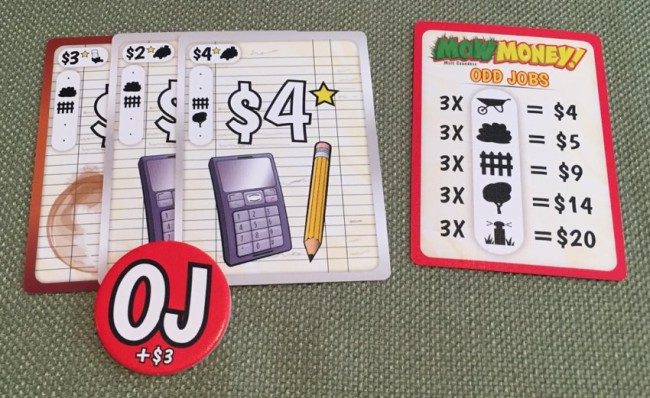
Then it’s on to resolving the Contract cards.
Staring with A (Apple Hollow), players determine who wins the Contract. If only 1 player bid on a neighborhood, the automatically get the Contract. If more than one player bid on a neighborhood, the player who bid the lowest gets the Contract.
If multiple players bid on a neighborhood and their bid amounts are the same, there are a series of check to break the tie.
First, the player who staked the most Reputation points gets it.
Second, the player with the Starting Player marker gets it.
If neither of those conditions occurs, the player sitting closest in clockwise order from the one with the Starting Player marker gets it.
Players who win a Contract then collect the amount of money from the bank equal to their bid. Players who staked their reputation on their bid and won the Contract will receive the amount equal to their unmodified bid. Then players add their won Contract cards to their hand.
The winning player discards the Bid cards used to win the bid.
Any player who bid on a Contract and didn’t win, returns their Bid cards to their hand. All Bluff cards used are returned to the player’s hand.
Once all Contracts have been awarded, a player who did not win any Contract cards or complete an Odd Job using their OJ token may then complete an Odd Job from the cards in their hand. If they complete an Odd Job this way, they don’t receive the $3 Odd Jobs bonus.
4. MAINTENANCE
During the Maintenance phase, players do a couple simple steps.
First, they check to see if any neighborhoods are out of Contract cards. If at least one neighborhood is out of contracts, the game ends.
Second, all Contract cards that didn’t receive any bids are placed face down at the bottom of their stack.
Third, the Starting Player marker is passed to the player to the left and another round begins.
Game End
The game ends when one of the neighborhoods runs out of Contract cards.
Players add up their Reputation points from Contract cards they’ve gained and the Medium and Advanced Lawnmowers they’ve purchased. In addition, every $3 is also worth 1 Reputation point.
The player with the highest Reputation wins the game!
Can the whole family enjoy Mow Money?
Mow Money is a game that most family members can enjoy playing. The recommended age is 10+ and we’d say it’s pretty accurate.
As you can tell from the How To Play section, running a landscaping business takes some work. Players must be able to manage their money, evaluate options, and bid wisely to do well.
We’ve found the most engaging part of Mow Money to be the bidding phase.
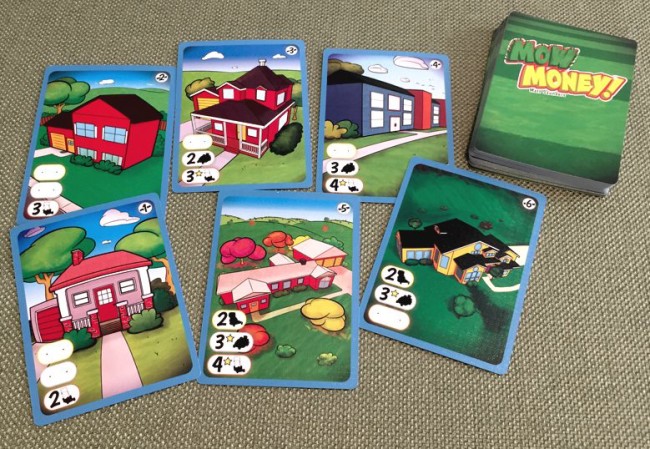
While it’s a blind bid – with players placing their bids face down – because bids are done in turn order, there’s a chance to guess which neighborhoods other players are bidding on and adjust accordingly. Of course, if you bid first, you won’t have that information to go off of. But since the Starting Player changes each round, you’ll get your opportunity later.
And bidding first isn’t completely hopeless. Bidding first gives you a chance to use your Bluff cards to trick the other players and keep them guessing on which neighborhoods you’re bidding on.
So if you’ve got family members who enjoy such planning and postulating, we think they’ll enjoy bidding in Mow Money as well.
The other elements of the game all support bidding on neighborhood contracts. Determining when to buy new lawnmowers and how much money spend on different bid cards all drive towards being able to place the most effective bids.
Players that can think through these various game elements will do well.
Balance of Strategy and Luck in Mow Money
Mow Money has a nice blend of strategy and luck.
As mentioned, players need to use strategic thinking to plan their bids wisely. Without planning ahead, players won’t do so well.
But at the same time, there’s a big element of luck in the game.
Which bid cards you draw will determine which contracts you’ll be able to bid on as well as which odd jobs you’ll be able to complete to earn money.
In addition, the blind bid process means that sometimes you’ll get lucky in being the only person bidding on a neighborhood. And sometimes you’ll be unlucky in bidding on the same neighborhood as others and losing out to their lower bids.
While some players may not enjoy that possibility, we’ve found that’s the very reason why we like it. The unknown bidding outcome makes the game interesting and worth playing. Without those elements of luck, the game would be pretty dull.
You want to earn as much money as you can, but you have to bid low to win contracts. That constant pull makes the game very fun.
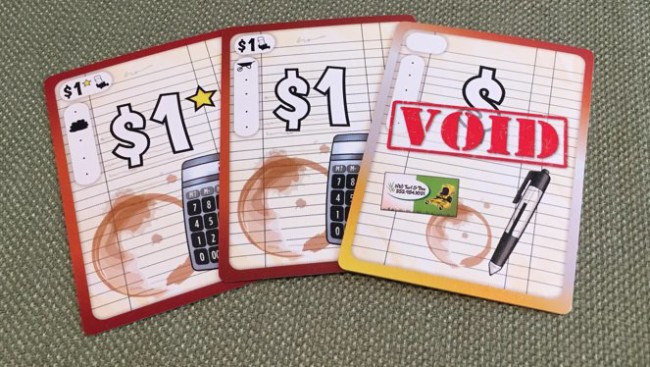
I still remember my first play of Mow Money at SaltCon 2016 with 6 players – including the designer Matt Saunders. And even though there were 6 contracts to bid on each round, I was shut out of winning contracts the first three rounds while another player was walking away winning contracts in neighborhoods where he was the only bidder.
Once I realized how to make money going for Odd Jobs, I finally started earning enough money to get back in the game. Even though luck didn’t seem to be in my favor, I was anxious to play the game again.
And now that I’ve had the chance to do so, I’ve found that I like the risk inherent in the bidding on jobs. It creates a sort of tension that I like in games — trying to guess what the other players will do and then moving ahead with a plan.
Fun stuff.
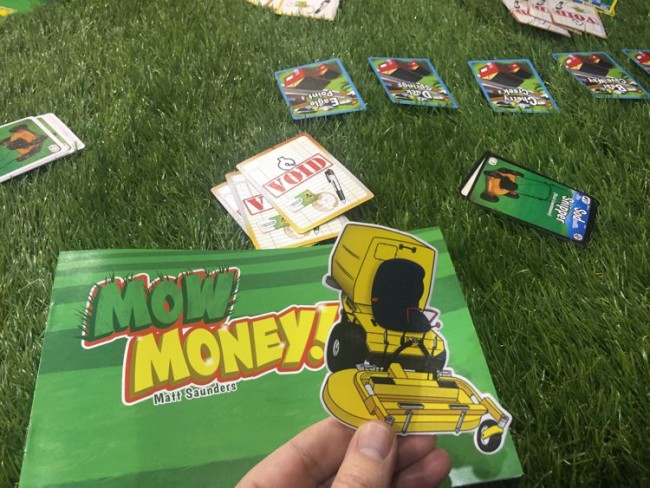
How does Mow Money score on our “Let’s Play Again” game meter?
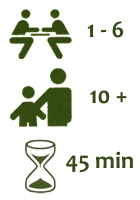 Mow Money scores well on our “let’s play again” game meter because of the creative theme. We can build a landscaping business from scratch without all the heat and sweat.
Mow Money scores well on our “let’s play again” game meter because of the creative theme. We can build a landscaping business from scratch without all the heat and sweat.
We also like that there isn’t much downtime for players. Since the phases of the game are each played in turn order, the game flows nicely. So players do their small part during a phase (invest, bid) and it’s on to the next player. Then everyone cashes in on the bids and it’s on to the next round.
Since the amount of contract cards is dependent on the number of players, the game also scales nicely regardless of how many play.
All of those add up to a game that’s great for family play.
Thanks Mayday Games for another fun family game!

